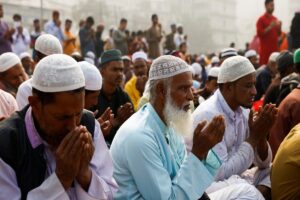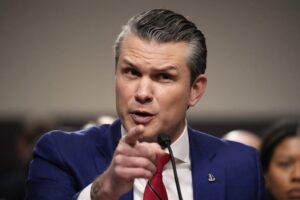Yael Noy doesn’t wear military fatigues, but she describes herself as being in battle right now, after the Hamas assault on 7 October.
“I’m fighting to be good,” she tells me. “I’m fighting to stay moral when both sides are in such terrible pain. I’m fighting to be the same person I was before.”
Yael heads a charity called Road to Recovery, a group of Israeli volunteers who drive sick Palestinians – mostly children – from checkpoints in the occupied West Bank and Gaza to hospital appointments in Israel.
Or did.
The 1,000 or so volunteers can no longer take patients from Gaza, which is governed by Hamas. And four of them are dead – murdered as Palestinian gunmen stormed through their kibbutzim in southern Israel.
They include Vivian Silver, a renowned peace activist; Adi Dagan, who Yael describes as “funny” and always ready to step in and ferry patients at short notice in his big car; Tammy Suchman, a much-loved grandmother; and Eli Or-Gad, who loved talking about poetry.
Four other volunteers lost close family members on 7 October.
About 1,200 people were killed in the Hamas attack on Israel. Since then, Gaza’s Hamas-run health ministry says more than 17,177 people have been killed in the Israeli offensive which followed.
Yael lives in northern Israel, but her parents are from kibbutz Alumim, one of the southern communities which was attacked – and they cowered as the assault unfolded, hour after terrifying hour.
Two of her nephews have been fighting in Gaza, in Israel’s military response.
In the immediate aftermath of 7 October, Yael says she was so shaken that she could barely breathe.
“Something was broken in my heart and I said that I would never talk to people in Gaza again,” she tells me.
But after a few days, she decided that she couldn’t allow the atrocities to change her.
She and most of the Road to Recovery volunteers have continued to drive Palestinians from the West Bank to hospitals in Israel for cancer treatment, organ transplants and kidney dialysis. As soon as she can, she says she’ll go and collect patients from Gaza again.
Yael refuses to dehumanise them, or equate them with Hamas, which is classed as a terrorist organisation in the UK and other countries.
“Like us they are victims of Hamas, so I think we should keep on helping them, because it’s not their fault,” she tells me over the phone.
“We can’t refuse to help a child with cancer. Our neighbours need help, so we need to help them.”
She worries for the families she knows in Gaza, with winter approaching and so many bombed houses now uninhabitable.
The parent of a 6-year-old child, who’d had an organ transplant, texted one of the Road to Recovery volunteers saying simply: “We are okay. We are going to die here.”
Yael is also desperately concerned for two Road to Recovery volunteers, Oded Lifschitz and Chaim Peri, who are still being held hostage by Hamas.
Emotionally, she feels like she’s being torn apart. She has uncles and cousins who are adamantly opposed to what she’s doing and accuse her of helping Hamas.
And it’s not just family members who disapprove.
“When I’m driving with Palestinians through checkpoints in the West Bank, soldiers have asked me how I can do what I’m doing,” she tells me. “Other people ask the same question.”
“It’s dangerous now to even talk about the suffering of the kids in Gaza – people look at me like I’m the enemy,” she says, through sobs. “But I’m not doing it for the Palestinians, I’m doing it because I want to be proud to be Israeli. I believe that whether you’re an Israeli or a Palestinian, a Jew or an Arab, people are people.”
Some Palestinian families have reached out to find out how she is. But it’s harder than ever now for those few people swimming against the tide by trying to bridge the divide between Israelis and Palestinians.
“Even people on the left say that we should flatten Gaza. Both sides have become more and more radicalised,” Yael says.
“I really don’t know what will happen in the future. But I know that both of us will still live here, so we must find a solution.”
Since 7 October, some Road to Recovery volunteers have dropped out of driving altogether or decided to focus on taking medicines to displaced Israelis instead, while the war lasts.
But other volunteers have stepped in, to make sure that sick Palestinians from the West Bank still get to appointments that are saving their lives.
Yael says the charity will need support from the outside world to keep going because donations from within Israel have virtually stopped.
But she is sure that, when it becomes possible, Road to Recovery will be collecting child patients from Gaza again – hoping that they will all have survived.
“It may be hard. But we can’t stop,” she says. “It’s my mission and I have to do it.”
Source : BBC









